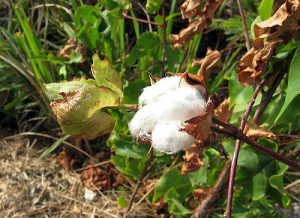Conversion to organic cotton production improves the livelihood of smallholder farmers in Odisha, India
 Photo credit: Ashley
Photo credit: Ashley
A recent study published in the journal Renewable Agriculture and Food Systems investigated how conversion of conventional cotton to organic cotton by smallholder farmers in India affects their livelihood. Using interviews and on-farm observations, the researchers found that conversion to organic cotton production lead to improvements in soil, reduced farmer exposure to toxic chemicals, and lowered the amount of money expended on farm inputs such as pesticides and fertilizers. This reduction in costs associated with purchasing farm inputs in turn reduced the dependency of farmers on moneylenders further increasing their financial stability. Organic farming trainings also had the positive social impact of strengthening bonds within the community. While organic cotton production overall presented numerous economic, environmental and social advantages over conventional cotton production, the increase in workload associated with organic farming still created challenges for farm workers – particularly women.



